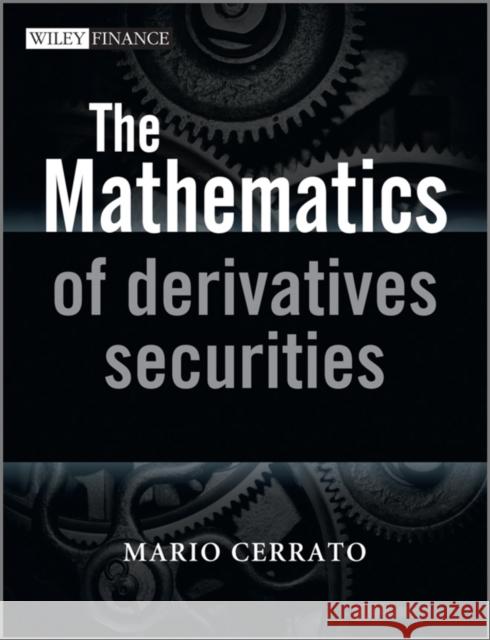The Mathematics of Derivatives Securities with Applications in MATLAB » książka
The Mathematics of Derivatives Securities with Applications in MATLAB
ISBN-13: 9780470683699 / Angielski / Twarda / 2012 / 248 str.
Quantitative Finance is expanding rapidly. One of the aspects of the recent financial crisis is that, given the complexity of financial products, the demand for people with high numeracy skills is likely to grow and this means more recognition will be given to Quantitative Finance in existing and new course structures worldwide. Evidence has suggested that many holders of complex financial securities before the financial crisis did not have in-house experts or rely on a third-party in order to assess the risk exposure of their investments. Therefore, this experience shows the need for better understanding of risk associate with complex financial securities in the future. The Mathematics of Derivative Securities with Applications in MATLAB provides readers with an introduction to probability theory, stochastic calculus and stochastic processes, followed by discussion on the application of that knowledge to solve complex financial problems such as pricing and hedging exotic options, pricing American derivatives, pricing and hedging under stochastic volatility and an introduction to interest rates modelling.
The book begins with an overview of MATLAB and the various components that will be used alongside it throughout the textbook. Following this, the first part of the book is an in depth introduction to Probability theory, Stochastic Processes and Ito Calculus and Ito Integral. This is essential to fully understand some of the mathematical concepts used in the following part of the book. The second part focuses on financial engineering and guides the reader through the fundamental theorem of asset pricing using the Black and Scholes Economy and Formula, Options Pricing through European and American style options, summaries of Exotic Options, Stochastic Volatility Models and Interest rate Modelling. Topics covered in this part are explained using MATLAB codes showing how the theoretical models are used practically.
Authored from an academic's perspective, the book discusses complex analytical issues and intricate financial instruments in a way that it is accessible to postgraduate students with or without a previous background in probability theory and finance. It is written to be the ideal primary reference book or a perfect companion to other related works. The book uses clear and detailed mathematical explanation accompanied by examples involving real case scenarios throughout and provides MATLAB codes for a variety of topics.











